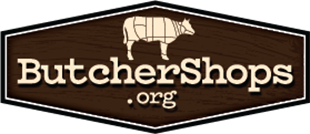
Serenata Brands is the retail division of High Quality Organics who together have over 3,000 items to choose from for product development ideas for our customers. Serenata Brands has created a number of organic products ideal for butcher shops. These include the following brands:
- Char-Broil Organics (www.CharBroilOrganics.com):
- Organizza (www.Organizza.us): We created the first all-organic line-up of pizza toppings that include red pepper, ghost peeper, kale, spinach, banana pepper, chipotle, habanero and even a whole line-up of pizza dip options such as ranch and hummus.
- Sans Sels (www.SansSels.com): Our all-organic line-up of no-salt alternative seasonings ideal for your customers looking for healthier options to salt. Our line-up of Sans Sels products are ideal for any butcher shop products.
As featured on the new TV Show, Entrepreneur Magazine, Serenata Brands is based in the Washoe Valley of Northern Nevada close to Lake Tahoe. Serenata Brands was created to be a healthy (organic) alternative to traditional and less-healthful food and beverage products that are consumed on a daily basis for a number of consumers in the USA and beyond.
We have created products that adults and their families can feel good about consuming without worries of bad ingredients. Our organic food and beverage products are made for breakfast, lunch, dinner and snacks with options such as cocoa, breakfast beverages, adult nutrition, breakfast dry mixes, smoothie mixes (single types and full blends) and complimentary dishes for both lunch and dinner. We have options for center-of-the-store, grab-and-go and food service applications.
Everything we make is organic with a number of our products that are also gluten-free, free of many allergens, non-GMO, Kosher and Halal certified amongst other benefits. We are certified organic as well are a Fair Trade partner. With our sister office in the Netherlands we specialize in sourcing our core organic ingredients in the best possible places worldwide. You will find our ingredient sourcing teams traveling around the globe in places such as Nicaragua, Peru, Sri Lanka, South Africa, India, Columbia, Thailand and many others sourcing the core organic ingredients in their homelands.
We have sales offices on both coasts (Southern California and North Carolina) to be available anytime. Since we have been in the organic ingredients business for over 30 years we specialize in being able to get-to-market very quickly and easily.

Organic is a labeling term that indicates that the food or other agricultural product has been produced through approved methods that integrate cultural, biological, and mechanical practices that foster cycling of resources, promote ecological balance, and conserve biodiversity. Synthetic fertilizers, sewage sludge, irradiation, and genetic engineering (GMOs) may not be used.

OU (Orthodox Union) Kosher is the world’s largest and most widely recognized kosher certification agency, certifying more than 500,000 products produced in over 6,000 plants located in 80 counties around the world. The OU was termed a “coveted seal of approval” by The New York Times, and is one of the world’s best-known trademarks.

Fair Trade goods are just that. Fair. From far-away farms to your shopping cart, products that bear the Fair Trade logo come from farmers and workers who are justly compensated. Fair Trade helps farmers in developing countries build sustainable businesses that positively influence their communities.

SQF (Safe Quality Food Institute) certification is a globally recognized rigorous food safety and quality certification based on scientific principles and applied across all industry sectors. SQF is recognized by the Global Food Safety Initiative (GFSI) and links primary production certification to food manufacturing, distribution and agent/broker management certification.

HACCP (Hazard Analysis and Critical Control Points) is a management system in which food safety is addressed through the analysis and control of biological, chemical, and physical hazards from raw material production, procurement and handling, to manufacturing, distribution and consumption of the finished product.

QAI (Quality Assurance International) is a leading international third-party organic certifier and advocate for certified organic production. QAI is committed to fostering increased consumer trust in the organic label.

ASTA (American Spice Trade Association), the voice of the U.S. spice industry, works to ensure clean, safe spices and shape public policy on behalf of the global industry.

IFOAM’s (International Federation of Organic Agriculture Movements) mission is leading, uniting and assisting the organic movement in its full diversity. IFOAM’s goal is the worldwide adoption of ecologically, socially and economically sound systems that are based on the principles of Organic Agriculture.



